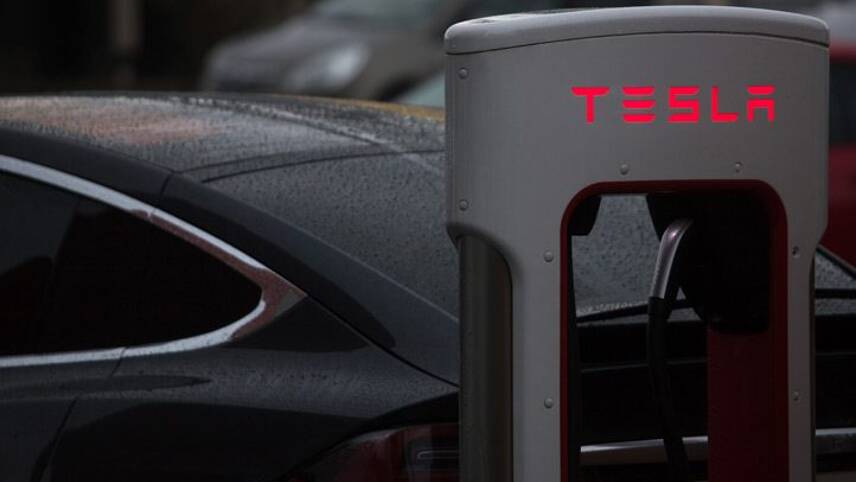Register for free and continue reading
Join our growing army of changemakers and get unlimited access to our premium content

The Shanghai plant has now surpassed production capacity before the shutdown
Bloomberg had reported that Tesla planned to unveil a Model 3 sedan with a longer driving range. The Tesla Model 3 Long Range RWD is being locally built in China and is currently only available in that country. It features a single charge driving range of 415 miles. In comparison, global offerings of the Tesla Model 3 EV come with a range of around 320 miles.
Website Tesmanian has since reported that more than 20,000 of the new models may have been ordered in China during a 24-hour period.
Tesla has estimated that its EV stock has collectively travelled around 10 billion miles, as of April 2019. Were this distance covered by petrol or diesel cars, the company claims that an additional four million tonnes of CO2 would have been emitted.
The vehicle forms the third stage of Tesla’s strategy to make EVs a mainstream proposition for the average car buyer. A four-step plan will see Tesla build on the success of its EV portfolio by extending the electrification process to heavy-duty trucks and high passenger-density urban transport.
Tesla was able to resume production at its Shanghai plant in February, following shutdowns imposed due to the coronavirus. According to the company, the Shanghai plant has now surpassed production capacity before the shutdown, with the plant now able to produce around 3,000 vehicles a week.
Gigafactory disruption
The firm’s factory in Fremont, California, has shut down, while it’s New York factory is halting production of all vehicles and parts except “those necessary for service, infrastructure and critical supply chains”.
Tesla has not said when either location will return to a full operation but has reassured staff and investors that the suspensions are temporary.
The decision was taken, Tesla said in a statement, due to the “challenges” which the pandemic has caused to “employees, their families and suppliers”. On the latter, Tesla notably has extensive supply chains in China and Germany. Moreover, Panasonic is this week scaling down operations at the Nevada-based battery Gigafactory it operates in a joint venture with Tesla, before initiating a 14-day shutdown.
In Europe, Tesla’s plan to build a new Gigafactory for EV production in Germany has been temporarily halted by a court order concerning the clearance of more than 90 hectares of forest in Brandenburg.
Germany’s environment ministry had given Tesla permission to begin work on its first European Gigafactory, despite the carmaker not receiving planning permission to do so. In response, local environmental group the Grüne Liga Brandenburg (Green League of Brandenburg), filed a court complaint about tree-felling on the site.
The state of Brandenburg sold a 300-hectare site in Grünheide for around £34m (€41m) and Tesla started cutting trees across one-third of the site In February. Tesla wants to start EV production in Brandenburg next year, with plans in place to produce 150,000 vehicles annually. Production could increase to up to 500,000 vehicles.
Matt Mace


Is the 4 million tonnes of C02 saving correct when looking at the whole life cycle of the vehicle production including production? However a 400mile range car is great news but it does need to be affordable.
EVs are fine, but expensive; replacement batteries are expensive, who, then, buys second hand EV, soon to need a new battery at anything up to £10,000?
Further, the power ha to be generated somehow, and if EV take up matches the ambitions of the suppliers, where does this come from. There does not seem any hurry to plan for this generation, is it to be renewables (when the wind blows of the sun shines), but conventional generation on the scale in prospect, non carbon generation has to nuclear.
But how???????????
Richard Phillips
@Richard
"Tesla batteries are designed to last between 300,000 and 500,000 miles, so replacement shouldn’t be a major concern for most drivers. It’s estimated that the cost to replace a Model 3 battery will be in the $3,000 to $7,000 range"
https://evannex.com/pages/the-cost-of-a-tesla-the-costs-of-the-tesla-models-maintenance-charging-and-more
Agreed the cost of EVs still need to come down, which they will, and that expanding generation capacity is occurring at a snails pace (don’t forget the electrification of heat either)